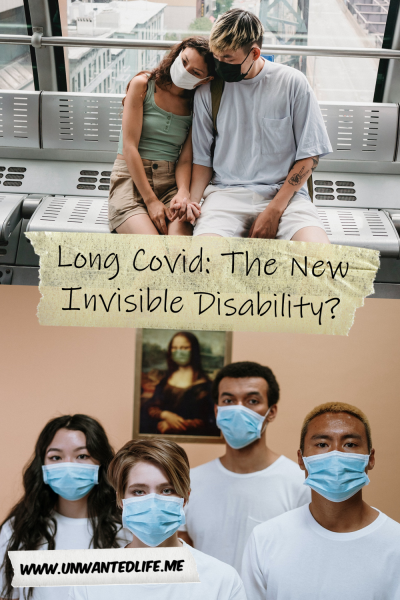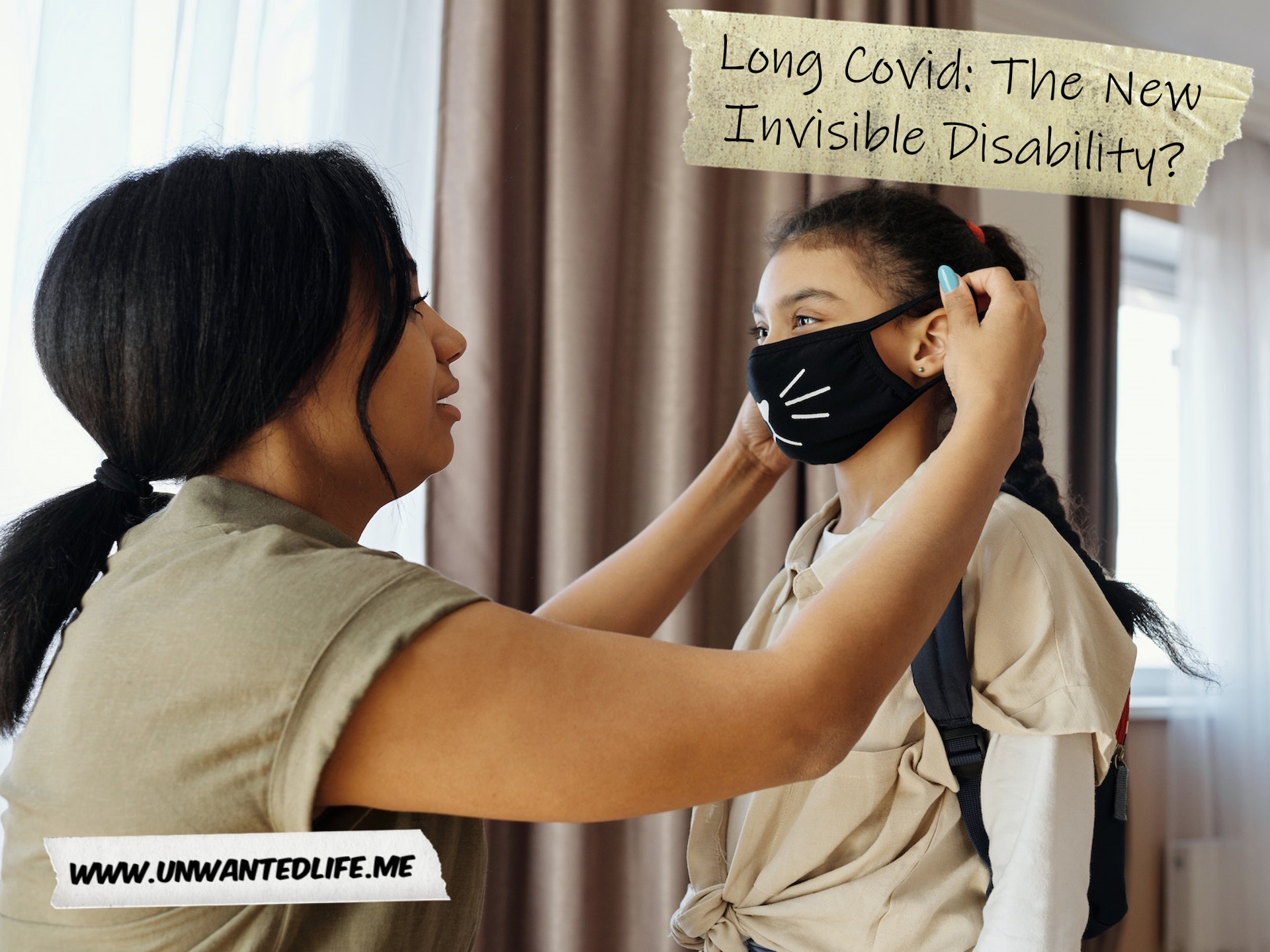When the coronavirus hit, none of us really knew what to do, even though the world is in a far better place to handle such outbreaks than at any other time in history. We also didn’t know what the long-term effects of coronavirus, aka long covid, were going to be, but now we’re starting to find out.
What Is COVID-19?
According to the World Health Organisation (WHO), COVID-19 is an infectious disease caused by the SARS-CoV-2 virus. You may be familiar with SARS viruses because this isn’t the world’s first run-in with this species of virus. Believe it or not, there was a SARS coronavirus outbreak between 2002–2004, with the SARS-CoV or SARS-CoV-1.
What Is Long Covid?
In a report by BBC Wales, Sian Griffiths tells of how they were desperate to go back to work but were unable to. This led to them feeling shame because of their long covid symptoms. Because of their symptoms, they haven’t been able to work for 18 months. They also report that they can’t drive and have become very forgetful, leaving doors open and forgetting their cooking.
In another report, this time by BBC Scotland, Lucy Adams tells us about how she’s lived with long covid for three years and counting. As has been one of my fears with having an invisible disability, Lucy talks of how to look at her, people would think she’s healthy. But really, she’s dealing with chronic pain that stops her from enjoying the physicality activities she loved.
Even though I have made huge progress I still suffer most days with chronic pain in my joints, a rolling sense of vertigo, fatigue and brain fog
A substantial number of people who survived the acute phase of catching the coronavirus have never made a full recovery (APA). This has led to the speculation that the 2019 strain of coronavirus is more than just a simple respiratory virus, but one that affects every major system and organ in the body (Bowe, Xie, Xu, and Al-Aly, 2021).
According to the BBC, there is some concern among some scientists about the emergence of a small handful of people with long covid who have developed what they term acute Parkinsonism. This means that there’s a small number of sufferers with abnormalities like tremors, impaired speech, and muscle stiffness. However, neurologists warn that it’s too early to draw such conclusions because so little is still known about long covid.
Also reported by the BBC, the scientific community is unsure if brain tissue invaded by Sars-CoV-2 can contribute to neurodegenerative disease, at least at present. Typically, coronaviruses are considered to be “hit and run” viruses, which means they’re a fairly short-lived disease, although that doesn’t stop them from being deadly for some. Something we’ve found out the hard way.

The basic rule of thumb of what long covid is comes from the Centers for Disease Control and Prevention (CDC). Long covid includes a wide range of ongoing health concerns that can last weeks, months, or even years. The latter is of most concern because so much about long covid is still unknown. This has been made worse by the wide range of presentations that also overlap with numerous other conditions (Hereth et al., 2022).
What this means is that even after you’ve recovered from the original coronavirus infection, testing negative, there is a risk of symptoms carrying on afterwards, for years (NHS). Herein lies the problem. At present, there is no diagnostic test that can show someone has long covid, which could mean they find it difficult to access care (Hereth et al., 2022).
Fortunately, as reported by Unison on a landmark legal case for sufferers of long covid, an employment tribunal recently ruled that the symptoms brought about by the condition may be classed as a disability. At a preliminary hearing, Terence Burke brought a claim for disability discrimination and unfair dismissal, after being fired because of their long covid. The tribunal decided this amounted to disability discrimination under the Equality Act 2010. Thus, the claim will continue. Although it should be noted that this isn’t legally binding, but it’s the first step in securing the futures of people with long covid.
Summary
Do we need to worry about long covid? Although their research into long covid is still ongoing and it might be years before we fully understand it, at present, it doesn’t seem like we need to be worried. Most people recover within 12 weeks of having long covid.
However, just because it might be rare that people with long covid might still be feeling the effects of catching the coronavirus post 12 weeks, that doesn’t mean we shouldn’t support those who are unfortunate enough to find themselves still suffering. Kindness and empathy matter.
Let’s not forget the mental health impact of developing a long-term health condition, especially if it turns into a long-term invisible disability. Invisible disabilities are hard enough to live with at the best of times, but the coronavirus comes packaged with many toxic deniers who don’t believe it ever existed. Not something you want to have to worry about when your health is suffering.
As always, leave your feedback in the comments section below. Also, please share your experiences with coronavirus and long covid in the comments section below as well. Don’t forget, if you want to stay up-to-date with my blog, then sign up for my newsletter below. Alternatively, get push notifications for new articles by clicking the red bell icon in the bottom right corner.
Lastly, if you’d like to support my blog, you can make a donation of any size below. Until next time, Unwanted Life readers.
References
Bowe, B., Xie, Y., Xu, E., & Al-Aly, Z. (2021). Kidney outcomes in long COVID. Journal of the American Society of Nephrology, 32(11), 2851-2862. Retrieved from https://www.ncbi.nlm.nih.gov/pmc/articles/PMC8806085 and https://journals.lww.com/jasn/Fulltext/2021/11000/Kidney_Outcomes_in_Long_COVID.19.aspx.
Hereth, B., Tubig, P., Sorrels, A., Muldoon, A., Hills, K., & Evans, N. G. (2022). Long covid and disability: a brave new world. BMJ, 378. Retrieved from https://www.bmj.com/content/378/bmj-2021-069868.


I didn’t know there something such as long convid because I never had. Feel sorry for those who do have this.
Thanks for commenting
I know some lovely people online and IRL who’ve really suffered. I count myself lucky to have just been left with slightly useless lungs, despite having had no cough. It’s very frustrating but in relative terms very minor
Any long term effects from a short illness suck. I hope your lungs return to normal soon. Thanks for sharing your experience
My partner and I had Covid a month ago. Even though we are not incapacitated by it, we’re still struggling with vague symptoms like aches and pains, headaches, dry cough, tiredness and fuzzy heads. Even though it’s early days, it’s so frustrating. We both have physically demanding jobs and can only just about do them. When we try to exert ourselves, it’s exhausting.
Hopefully, for us it will only be temporary but I can empathise with those who life-limiting conditions.
Sorry to hear that you’re still feeling rough after catching covid. I hope you didn’t pick up a chest infection as a result of getting covid, as that’s what happened to me. It took me two rounds of antibiotics to return to normal. Anyway, I hope you’re back to your old selves soon
I have an inhaler now after getting Covid. It’s quite astonishing of the life long effects.
I hope that doesn’t turn into a chronic issue. I’ve had issues with my lungs on and off for a few years now, and that sucks, but I’ve not had to rely on an inhaler, not yet at least
Great post! I think we are all experiencing the physical and mental health consequences of covid. I’m lucky that I don’t have any physical symptoms of long covid. However, I can tell that the mental health of myself and those around me has been greatly affected by the pandemic. Thank you for sharing this important post 🙂
I agree, the pandemic has had an effect on people’s mental health as well. I know it’s affected my need to hide myself from others, which is one of my lesser anxiety issues. Thanks for sharing your thoughts
Enjoyed reading, I firmly believe long Covid is #MyalgicEncephalomyelitis M.E, we know that most get it after suffering some kind of virus, in my case Flu. Our Government & health authority have been negligent on every level, decades of nothing & more people left to suffer 🤓
I didn’t know that ME could be caused by viral infections
Yes, I got Flu one Christmas but never recovered, most of my other M.E friends I’ve met along the way got it after Flu, Glandular Fever, Pneumonia etc . It was a 6yr battle of hellish proportions to get myself sent to a virologist where it was finally diagnosed 33 yrs ago 🤓
I remember there being a lot of issues around ME back then within the medical field
The COVID-19 has significantly impacted mental health. COVID presents ongoing challenges, including psychological symptoms like anxiety and depression. Continued research is vital to understand its effects and develop effective mental health interventions for those affected
Indeed. Thanks for commenting